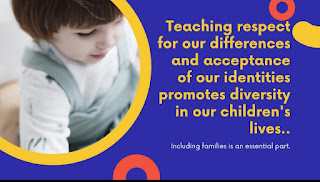Holistic development in early childhood
Areas connected to the holistic development
The areas connected to holistic development are described separately for understanding, but it is essential to keep thinking about the child as a whole and how the experiences that encourage development and learning are all in action at the same time.
Physical Development: This aspect refers to the growth and maturation of a child's body and physical abilities. It includes motor skills, coordination, and the development of fine and gross motor skills. Regular physical activity and healthy meals are essential for promoting physical development.
Cognitive Development: Cognitive development involves the child's mental abilities, including thinking, reasoning, problem-solving, language skills, memory, and creativity. Early stimulation and exposure to a stimulating environment are crucial for cognitive growth.
Emotional Development: Emotional development centers around a child's ability to understand and manage their emotions, as well as recognize and empathize with the emotions of others. Building emotional intelligence helps children form healthy relationships and cope with life's challenges.
Social Development: Social development goes along with a child's interactions with others and their ability to establish and maintain relationships. It includes learning social skills, understanding social norms, and developing a sense of empathy and cooperation.
Moral Development: Moral development involves the understanding of right and wrong and the development of a sense of ethics and values. Children learn morality through interactions with caregivers, peers, and the community.
Language Development: Language development is a critical aspect of a child's holistic development. It encompasses not only the ability to speak and understand language but also the capacity to read and write effectively.
Spiritual Development: Although often linked to religious beliefs, spiritual development can be seen more broadly as a child's search for meaning, purpose, and connection to the world around them.
Holistic development in action
Supporting the holistic development of children involves creating a nurturing and enriching environment that fosters growth across all aspects that it involves: physical, cognitive, emotional, social, and moral. Here are some tips to implement the holistic development approach in early childhood settings and at home.
1. Show children unconditional love and support. Positive reinforcement and encouragement can boost their self-esteem and confidence, which are essential for their overall development.
2. Create a safe and stimulating environment that encourages exploration and learning. Offer age-appropriate toys, books, games, songs, and activities that challenge their cognitive abilities and creativity.
3. Support regular physical activity and play. Outdoor play, sports, and other physical activities are essential for children's physical development and overall health.
4. Cultivate a love for reading. Reading is crucial for language development and cognitive growth. Read to children regularly and encourage them to read on their own as they grow older.
5. Promote social interactions with peers and adults. Organize playdates, encourage group activities, and teach children how to communicate, share, and cooperate with others.
6. Help children identify and express their emotions. Encourage open communication and provide a safe space for them to discuss their feelings.
7. Teach and model empathy and kindness in your interactions with others, and encourage children to understand and care for the feelings of others.
8. Establish clear and age-appropriate rules and boundaries. Consistent discipline helps children understand expectations and develop self-control.
9. Allow children to face challenges and solve problems independently when appropriate. This encourages their cognitive and decision-making skills.
10. Provide opportunities for creative expression through art, music, dance, and imaginative play. Creative activities enhance cognitive development and emotional presentation.
11. Teach children about honesty, integrity, and compassion. Encourage them to understand the consequences of their actions and make ethical decisions.
12. Set reasonable limits on screen time and encourage a balanced lifestyle that includes a variety of activities and interests.
13. Encourage and support children's natural curiosity by answering their questions and helping them to explore and learn about the world around them.
14. Be a positive role model. Children learn by observing and imitating adults. Be a positive role model, demonstrating the values and behaviors you want them to adopt.
15. Communicate and collaborate with parents, other teachers, and caregivers to ensure a consistent approach to the child's development.
Our role in the holistic development of children
Parents, caregivers, early childhood educators, and society as a whole play crucial roles in strengthening a child's holistic development. By providing all they need for their healthy development. By giving them a nurturing environment, we can help children reach their full potential and become well-developed individuals capable of contributing positively to society. That's our most important goal when working with children!
It's essential to bring your support to their individual needs and interests. By providing a positive and healthy environment, you can help children thrive and overcome challenges they would face later in life.
Recognize that their development may progress at different rates and in diverse ways. Nurturing a child's holistic development requires a supportive and enriching environment, consisting of loving adults, stimulating activities and learning, opportunities for exploration and play, and access to education and healthcare.









